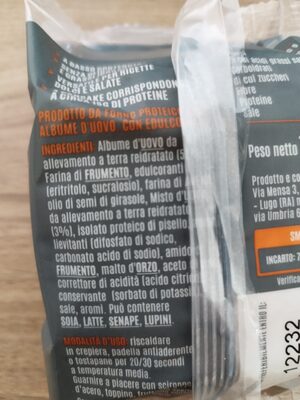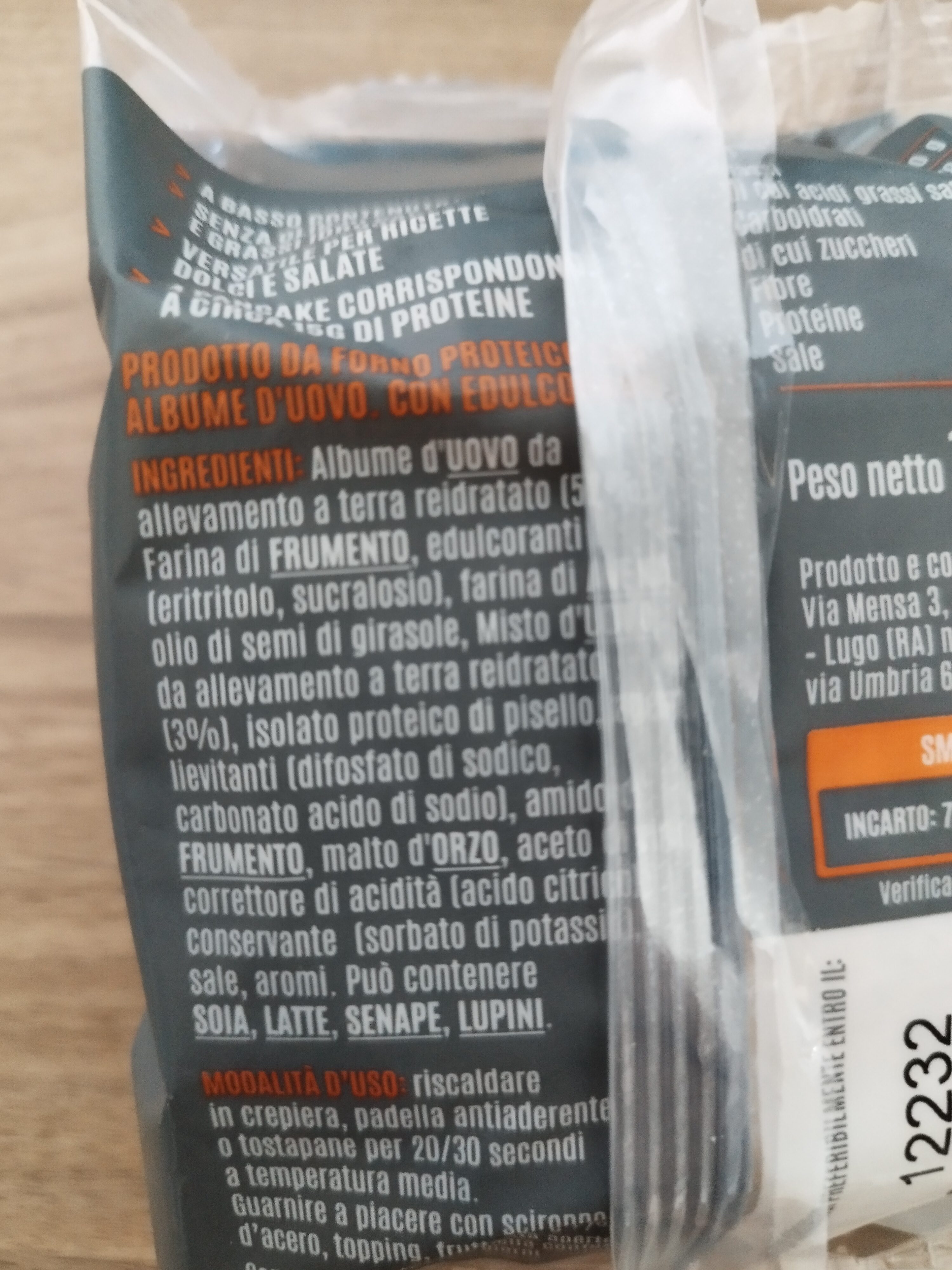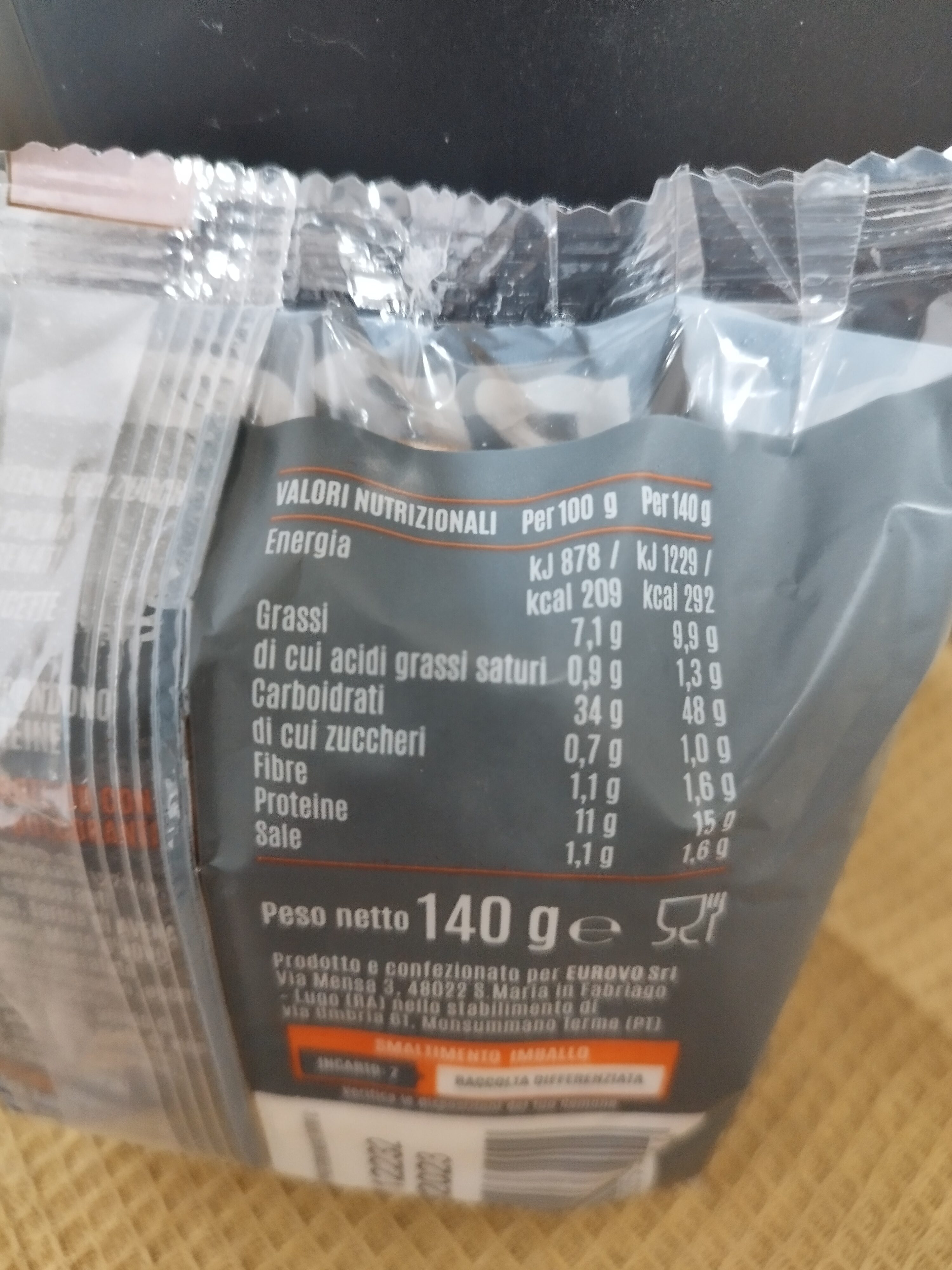Pancake proteici Proup - 140 g
This product page is not complete. You can help to complete it by editing it and adding more data from the photos we have, or by taking more photos using the app for Android or iPhone/iPad. Thank you!
×
Barcode: 8010053033414 (EAN / EAN-13)
Common name: Pancake proteici
Quantity: 140 g
Brands: ProUp
Categories: Breakfasts, Crêpes and galettes, Pancakes
Labels, certifications, awards: Low or no sugar, Low sugar
Origin of the product and/or its ingredients: Origine albume d'uovo: UE
Manufacturing or processing places: Prodotto e confezionato per EUROVO Srl - Via Mensa 3, 48022 S. Maria in Fabriago - Lugo (RA) nello stabilimento di via Umbria 61, Monsummano Terme (PT).
Link to the product page on the official site of the producer: https://pro-up.it/
Countries where sold: Italy










